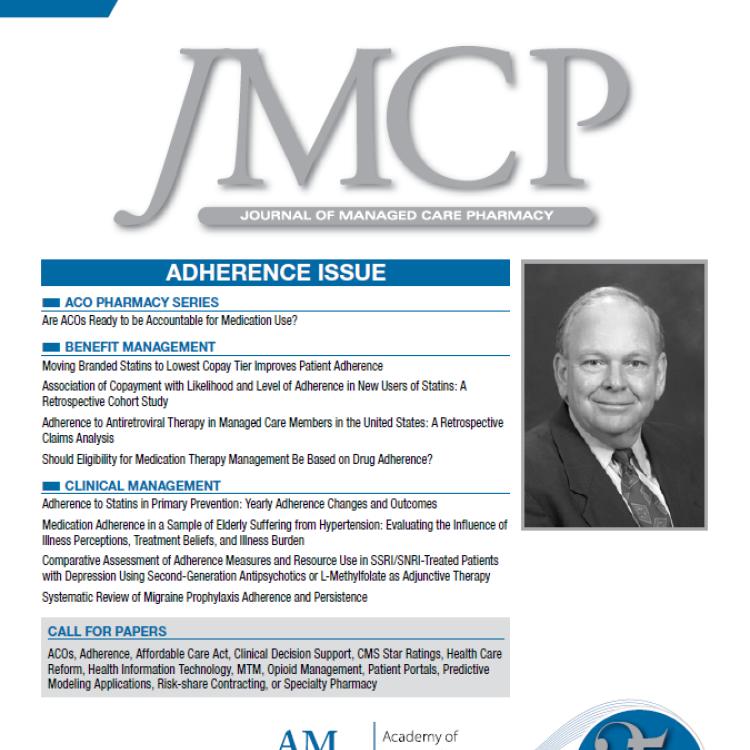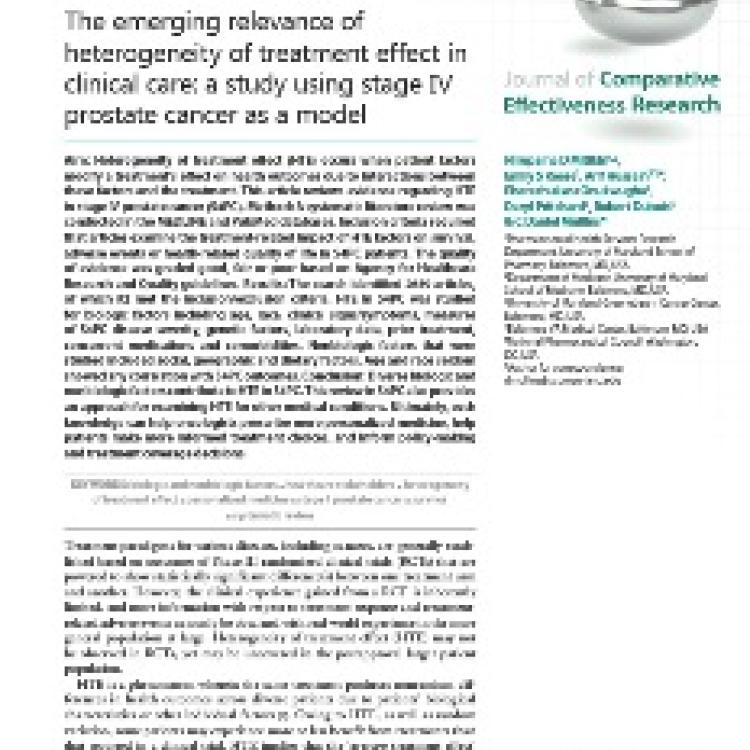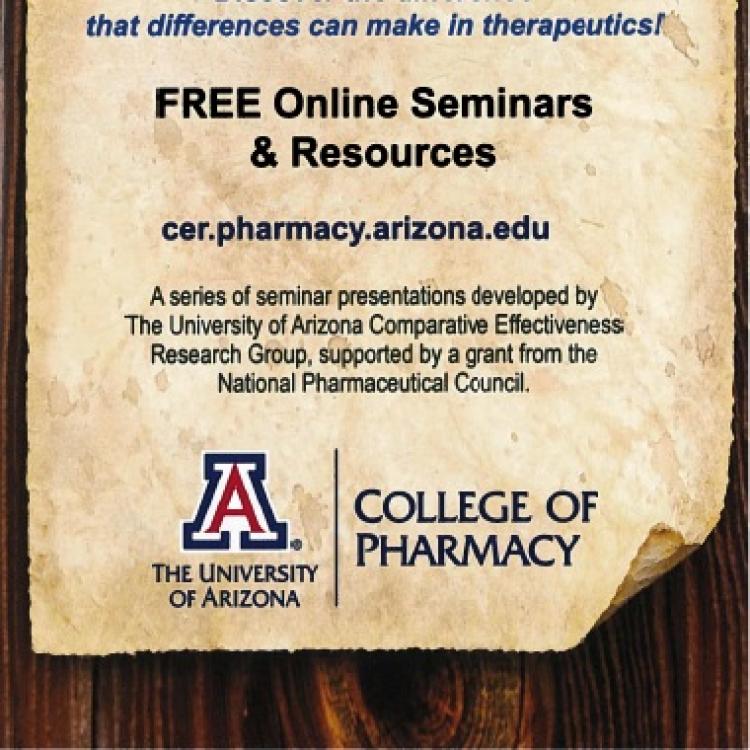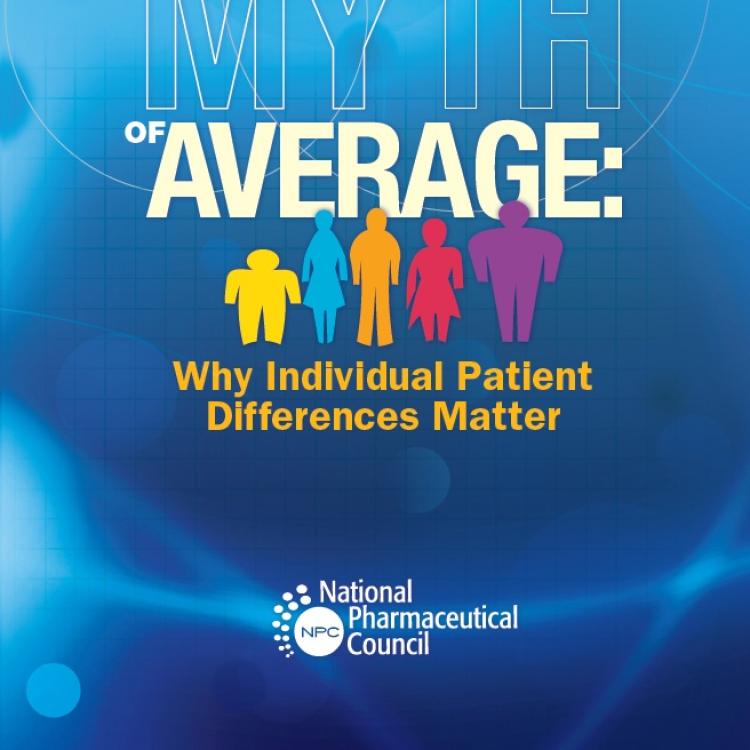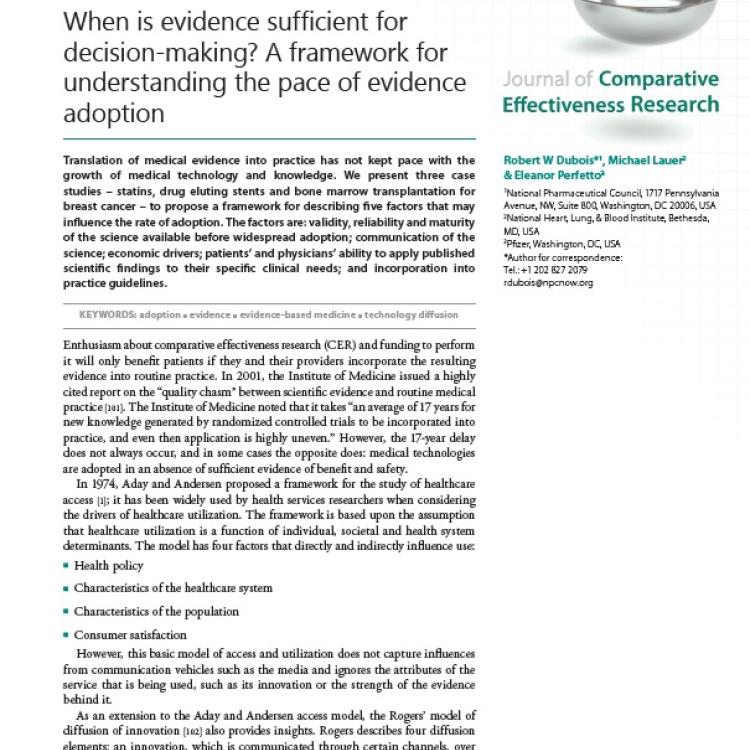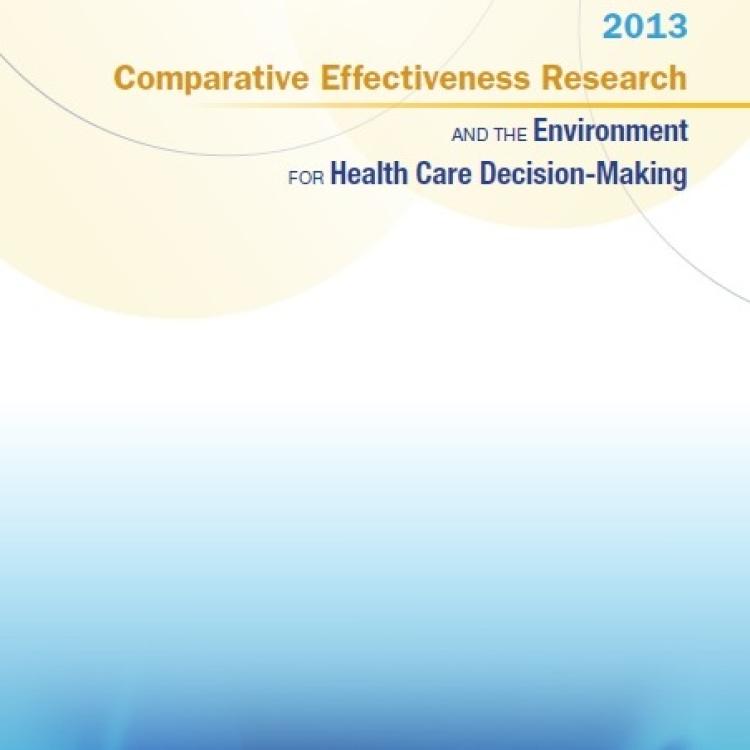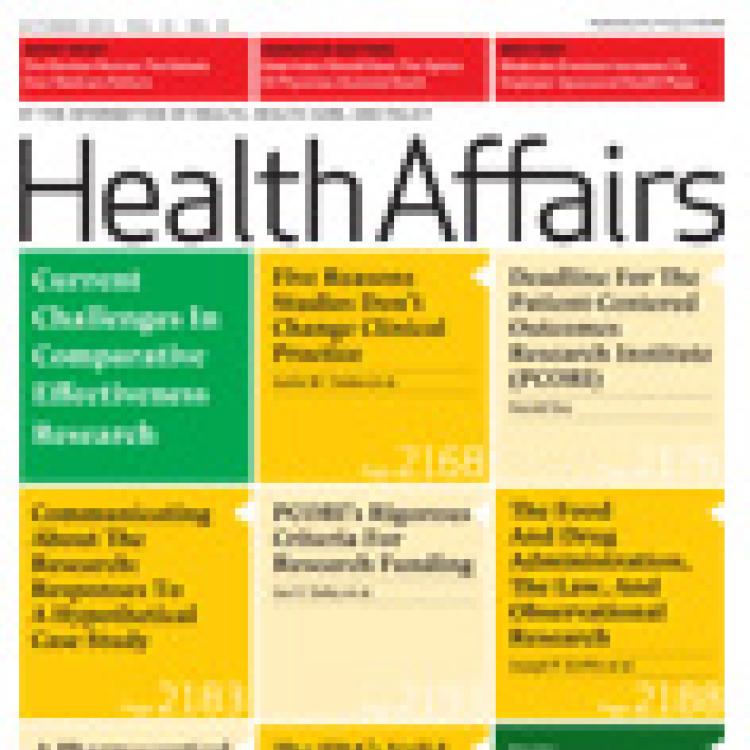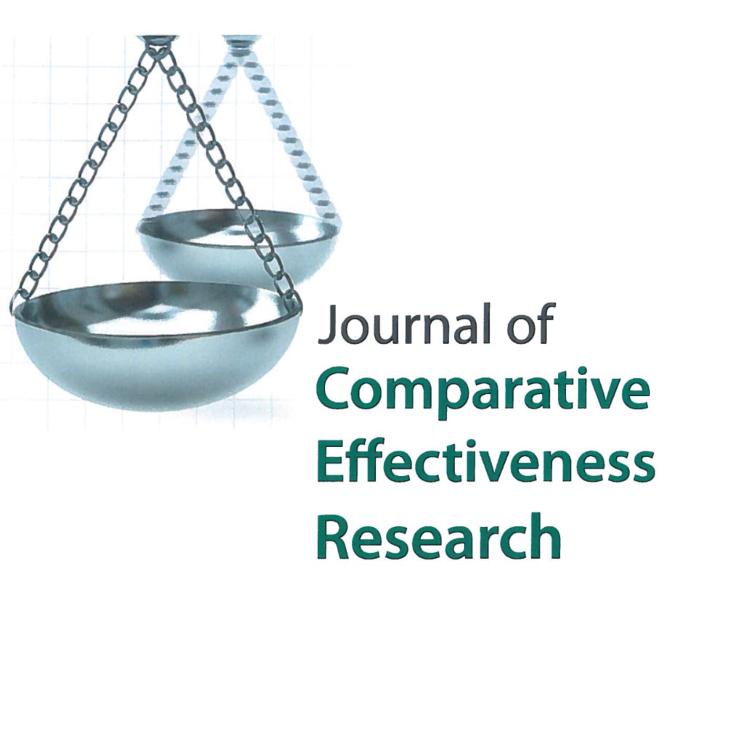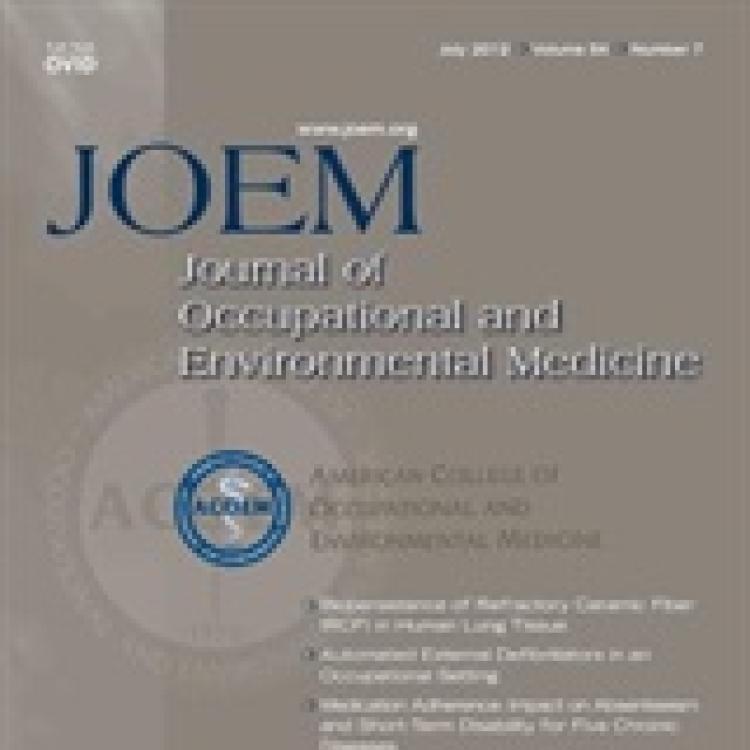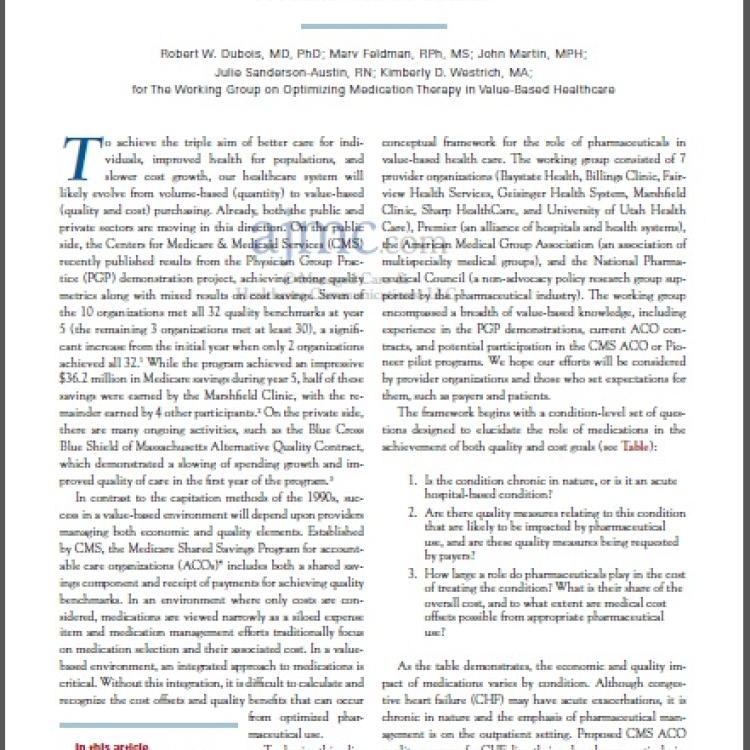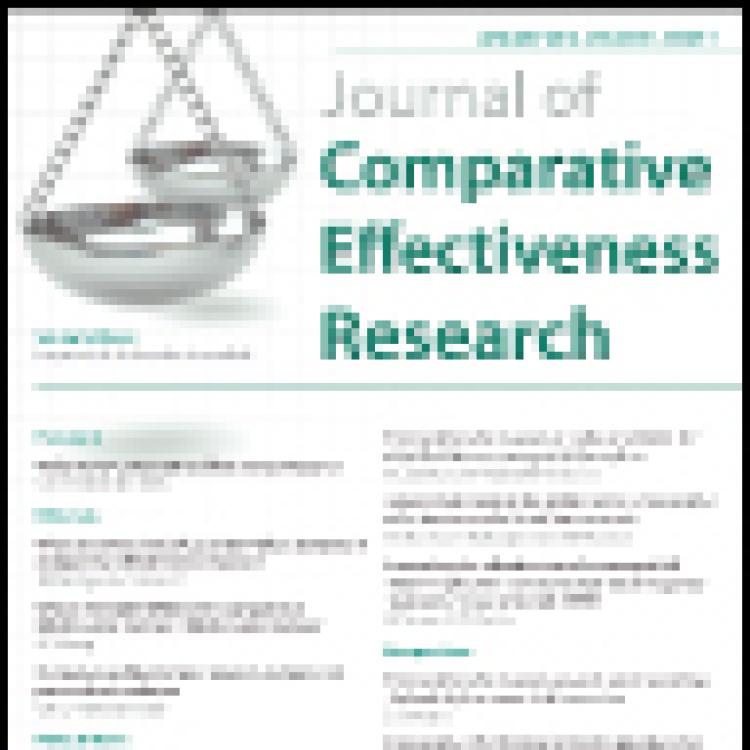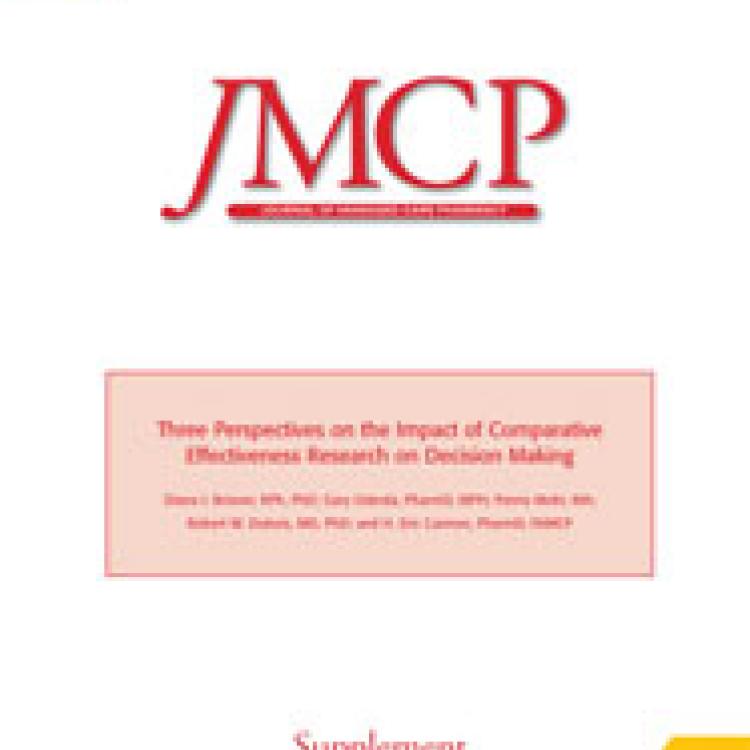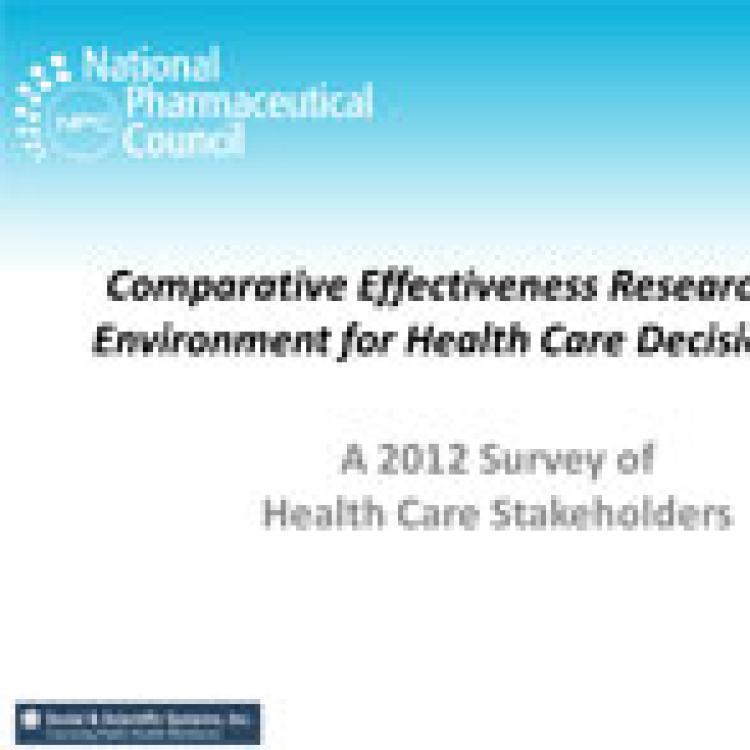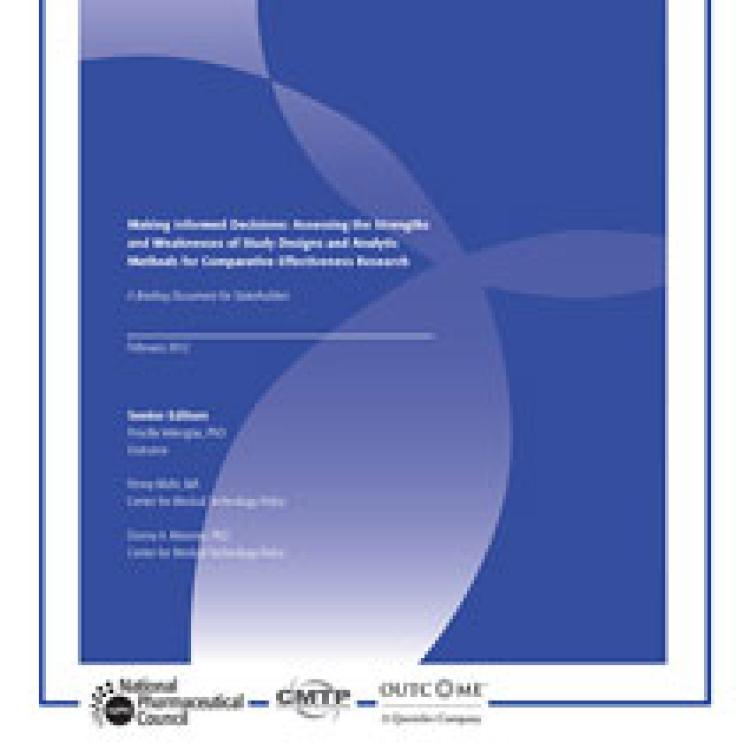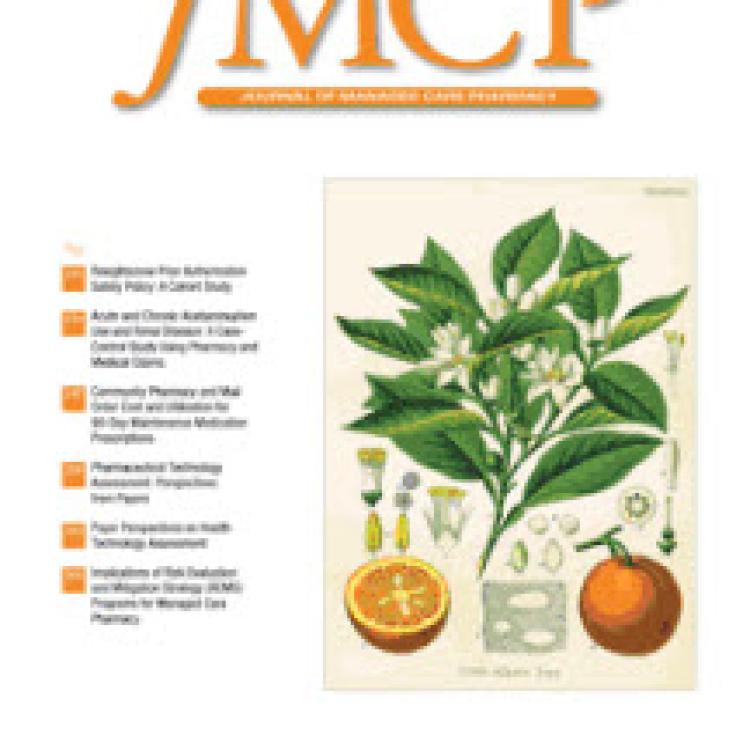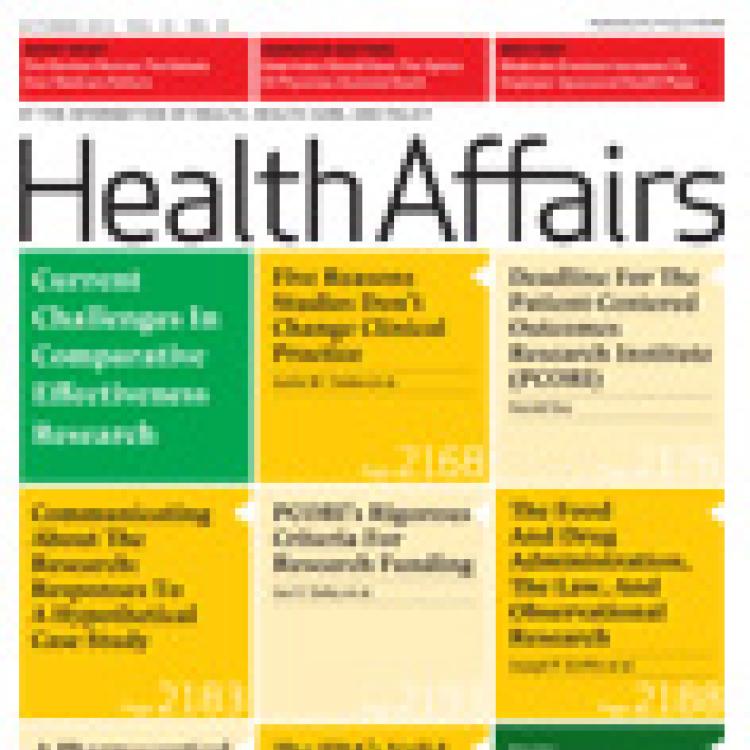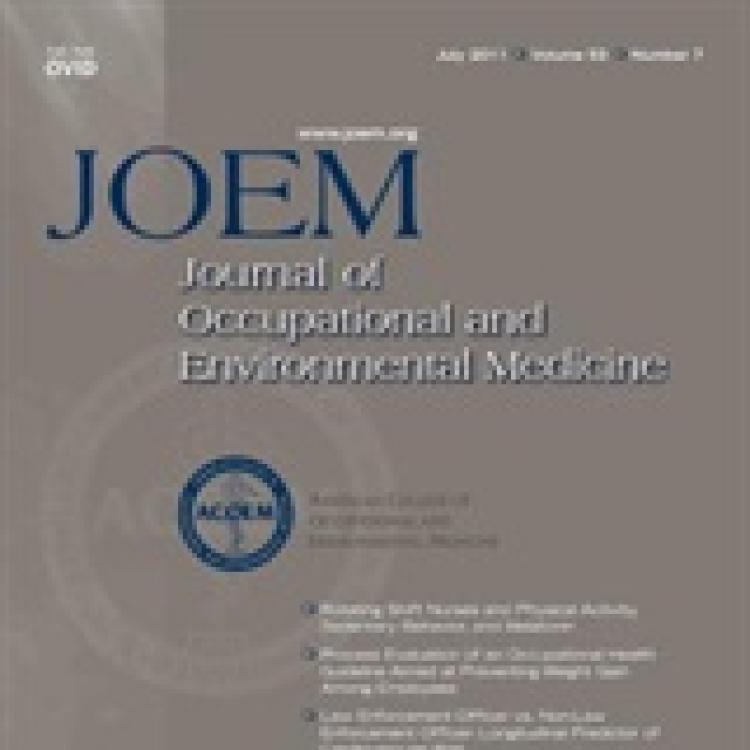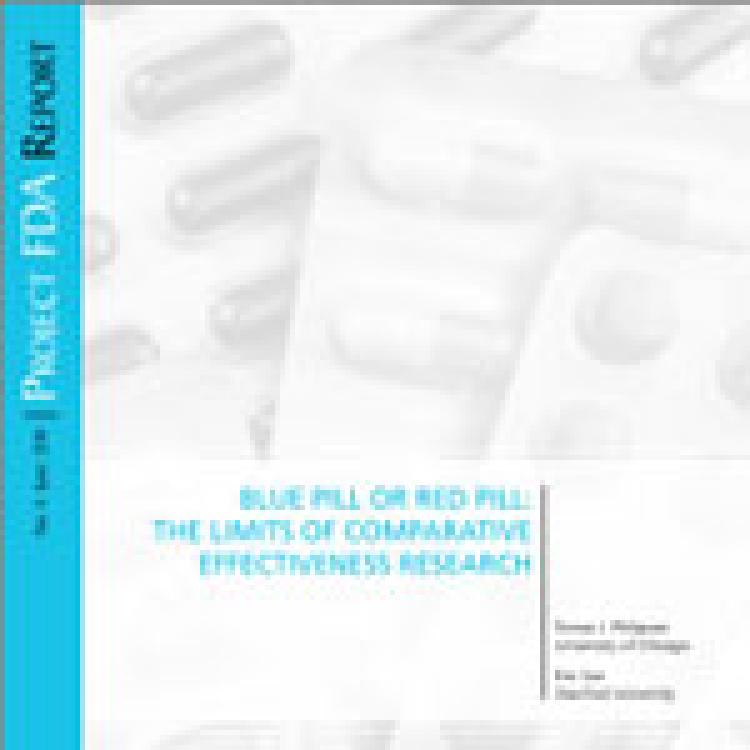Resources
The National Pharmaceutical Council (NPC) is a health policy research organization dedicated to the advancement of good evidence and science, and to fostering an environment in the United States that supports medical innovation.
Filter by:
Topic
Topic
- Accountable Care Organizations
- Alternative Payment Models
- Biopharmaceutical Innovation
- Clinical Pathways
- Elements of Value
- Evidence for Decision Making
- Formulary/Benefit Design
- Good Practices for Evidence
- Health Care Quality Measures
- Health Spending
- Health Spend Management
- High-Deductible Health Plans
- Impact on Outcome & Spending
- Individual Treatment Effects & Personalized Access
- IRA Implementation
- Pandemic Response
- Patient Cost Sharing
- Paying for Cures
- Pharmacy Benefit Managers (PBMs)
- Policy & Regulatory Barriers
- Real-World Data
- Real-World Evidence
- Regulatory Barriers & Challenges
- Understanding Health Spending
- Utilization Management & Step Therapy
- Value-Based Contracts
- Value-Based Insurance Design
- Value Assessment
- Value Assessment Frameworks
- Value Assessment Methods
Resource Type
Audience
Display Only
Showing 266 Results
Are ACOs Ready to Be Accountable for Medication Use?
This research examined accountable care organizations' capabilities to support, monitor and assure appropriate medication use in achieving the best patient health outcomes.
The Emerging Relevance of Heterogeneity of Treatment Effect in Clinical Care: A Study Using Stage IV Prostate Cancer as a Model
Although researchers and health care providers widely recognize that individuals with stage IV prostate cancer react differently to treatments, the factors that impact treatment outcomes, including…
About NPC Brochure
This 7-page brochure provides a snapshot of NPC's mission, strategic approach, recent research and leadership.
When Is Evidence Sufficient for Decision-Making?
It takes an average of 17 years for new data, or evidence, to become part of routine care, according to the Institute of Medicine. A new study outlines influential factors that impact how quickly new…
2013 Comparative Effectiveness Research and the Environment for Health Care Decision-Making
The National Pharmaceutical Council conducted its third annual survey of key health care stakeholders. The purpose was to set a baseline for where key stakeholders believe we are today on comparative…
Communicating About Comparative Effectiveness Research: A Health Affairs Symposium on the Issues
One of many issues connected with comparative effectiveness research is how the findings will be communicated, particularly if they pertain to prescription drugs and if the findings could be useful…
Principles for Planning and Conducting Comparative Effectiveness Research
A group of researchers developed a set of 13 best practice principles for comparative effectiveness research. The 13 principles were published as part of a peer-reviewed study in the September 2012…
Imputing Productivity Gains From Clinical Trials
A new study conducted by Tufts Medical Center and the National Pharmaceutical Council demonstrates a novel approach to measure productivity. The study found that therapies to treat depression yielded…
Role of Pharmaceuticals in Value-Based Healthcare: A Framework for Success
Accountable Care Organizations (ACOs) have received a great deal of attention and press through peer-reviewed articles and news stories. In an ACO, providers have at least some financial…
A Translation Table for Patient-Centered Comparative Effectiveness Research-- Guidance to Improve the Value of Research for Clinical and Health Policy Decision-Making
This collaborative project was developed by the National Pharmaceutical Council, the Center for Medical Technology Policy, and Outcome, a Quintiles Company.
Three Perspectives on the Impact of Comparative Effectiveness Research on Decision Making
In a special supplement to the May 2012 Journal of Managed Care Pharmacy, National Pharmaceutical Council Chief Science Officer Robert W. Dubois, MD, PhD, takes a closer look at comparative…
The State of Comparative Effectiveness Research and the Environment for Health Care Decision Making (2012)
The National Pharmaceutical Council conducted its second annual survey of key health care stakeholders. 95 percent of respondents said that CER was "somewhat" or "very important" to them or their…
Making Informed Decisions: Assessing the Strengths and Weaknesses of Study Designs and Analytic Methods for Comparative Effectiveness Research
The purpose of this document is to provide brief descriptions of both experimental and nonexperimental study designs and methods that may be used to address CER study questions.
Pharmaceutical Technology Assessment: Perspectives From Payers
The processes and evidence used in making pharmaceutical coverage decisions vary substantially among US health plan payers. These variations during the pharmaceutical technology assessment (PTA)…
Setting Priorities for Comparative Effectiveness Research: From Assessing Public Health Benefits to Being Open With the Public
Abstract (from Health Affairs): Medicine’s current evidence base is insufficient for many of the decisions made daily by clinicians, patients, purchasers, and policy makers. The Patient-Centered…
Comparative Effectiveness Research: Do Employers Care? What Will They Do? What About Productivity?
A survey by NPC and the Benfield Group found that one of the benefits employers are looking for from CER is more information about which treatments help with productivity.
